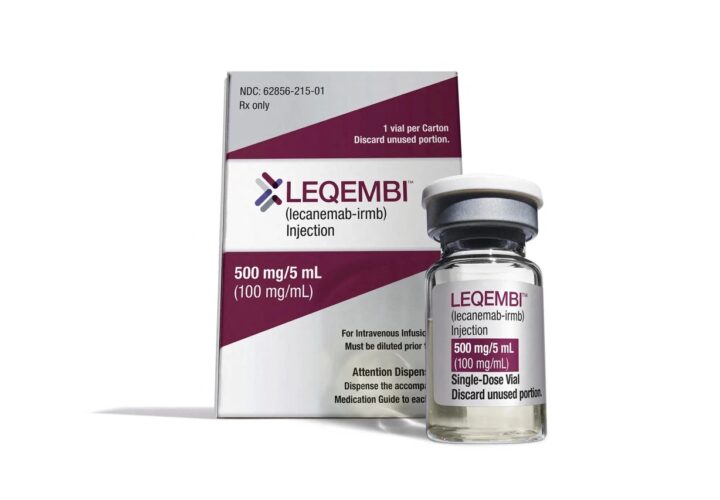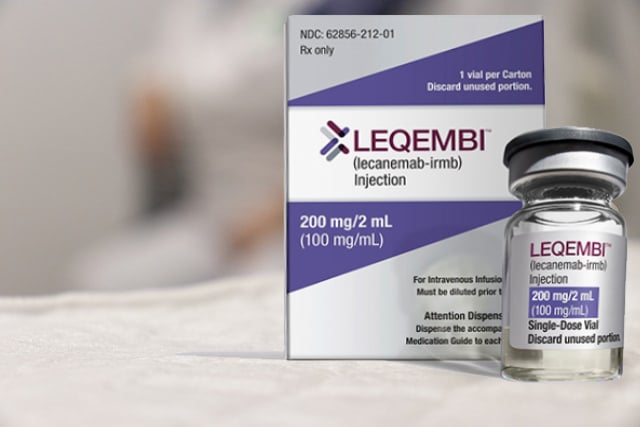Following FDA traditional approval of Eisai-Biogen Alzheimer's treatment Leqembi, broader Medicare coverage of the drug is now available to patients.
A new generation of Alzheimer’s treatments — groundbreaking, disease-modifying monoclonal antibody drugs — is on the rise, and two so far have hit the market: Aduhelm was granted accelerated FDA approval in 2021, and drugmakers Eisai’s and Biogen’s Alzheimer’s drug Leqembi (generic name lecanemab), which is designed to remove amyloid from the brain, was granted accelerated FDA approval in January 2023 and full, traditional FDA approval in July of 2023.
Around the same time, in July, Alzheimer’s patient advocates celebrated good news from the Centers for Medicare & Medicaid Services (CMS) that Medicare will cover the drug. This hasn’t been the case for its predecessor, Aduhelm (aducanumab). Still with only accelerated approval status, the CMS declined to cover Aduhelm for patients after a series of questions around Aduhelm’s efficacy and safety. In early June of 2023, the CMS made it clear Leqembi (lecanemab) might have a better outlook for Medicare patients.
(In February 2024, Biogen took Aduhelm off the market indefinitely.)
In June, CMS Administrator Chiquita Brooks-LaSure did say that FDA were to grant traditional approval — as they have for Leqembi, which was in clinical trials as lecanemab, with today’s announcement — then Medicare will cover it “in appropriate settings that also support the collection of real-world information to study the usefulness of these drugs for people with Medicare.” In other words, the CMS was willing to extend Medicare coverage if patients and doctors consented to sharing personal data with CMS.
Does Medicare cover Alzheimer’s treatment Leqembi (lecanemab)?
On July 6, 2023, the CMS released a follow-up statement saying that now that the FDA has granted traditional approval, Medicare and Medicaid will be covering the cost of the drug.
“CMS today affirms our commitment to help people with Alzheimer’s disease have timely access to innovative treatments that may lead to improved care and better outcomes,” Brooks-LaSure said in a statement. “With FDA’s decision, CMS will cover this medication broadly while continuing to gather data that will help us understand how the drug works. This is welcome news for the millions of people in this country and their families who are affected by this debilitating disease.”
A CMS-facilitated registry is open for clinicians to access here. Additional background information is available for providers here, and for patients here and on medicare.gov. From the agency:
To receive Medicare coverage, people will need to:
- be enrolled in Medicare,
- be diagnosed with mild cognitive impairment or mild Alzheimer’s disease dementia, with documented evidence of beta-amyloid plaque on the brain, and
- have a physician who participates in a qualifying registry with an appropriate clinical team and follow-up care. Clinicians participating in the registry will only need to complete a short, easy-to-use data submission. Individuals with Medicare should speak to their physician about whether this drug is right for them.
“Alzheimer’s disease takes a toll on not just the people suffering from the disease but also on their loved ones and caregivers in a way that almost no other illness does. CMS has always been committed to helping people obtain timely access to innovative treatments that meaningfully improve care and outcomes for this disease,” Brooks-LaSure said. “If the FDA grants traditional approval CMS is prepared to ensure anyone with Medicare Part B who meets the criteria is covered. I’m pleased to make this announcement today as part of CMS’ mission to help improve the lives of Americans we serve. I hope we see more private sector partners in this work making their own announcements soon.”
More information about co-insurance and Medicare coverage for the anti-amyloid drug Leqembi can be found here. As for Aduhelm, the CMS launched its own study to seek out better health and safety data, and that is ongoing.
The CMS has said that their policy for coverage of these anti-amyloid drugs moving forward will be contingent on full traditional FDA approval, which Leqembi now has, but Aduhelm does not. It’s still unclear if Medicare coverage will ever be extended to patients for coverage of similar anti-amyloid Alzheimer’s treatment Aduhelm. For now, patients need to pay the health care costs of Aduhelm out of pocket.
UPDATE: 3 March 2024, 8:08 P.M. ET. In February 2024, Biogen took Aduhelm off the market, citing financial concerns. Although the drug did receive accelerated, conditional FDA approval for the treatment of early Alzheimer’s disease in 2021, it is no longer available to new patients. The company announced it would sunset trials in May 2024 and cease supplying the drug to current patients in November 2024.




Would Leqembi any good to my mother she has dementia and Alzheimer’s diagnosed over 3 years ago she knows exactly what your saying but can not make any sense in her reply she is declining some days better than others she’s 82 years old would she be to old or would this be available to her I would like her to have this if it helped her in anyway or form thanks Karen
I have been diagnosed with Dementia what medication could help me?
Hi Marianne,
Here’s an article from Being Patient on FDA approved drugs for Alzheimer’s disease. You can speak to your doctor to see if any are appropriate for you.
https://www.beingpatient.com/alzheimers-medications-fda-approved/